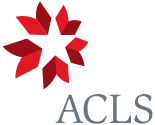New Storytellers: The Research Institute in Digital Ethnic Studies Digital Humanities needs your voice.

An Inclusive Summer Research Institute in Digital Ethnic Studies
This research institute will bring a diverse group of scholars together to share, learn, and create intensively. It is designed to further empower scholars from underrepresented groups through Digital Humanities approaches to diverse cultural heritages.
New Storytellers: The Research Institute in Digital Ethnic Studies
In this immersion program, participants will build lasting professional and intellectual connections both with each other and with expert faculty in ethnic studies and Digital Humanities. Participating faculty and graduate students will develop Digital Humanities skills and a network of contacts that will allow them to pursue digital ethnic studies throughout their careers, valuable assets in today’s academic and alternative job markets. They will receive—in addition to digital ethnic studies training—extensive mentoring, including a workshop on grant writing.
The education will be collaborative and mutual: faculty, staff, and students at UNL will gain new perspectives that will inform their own future work, and faculty participants from minority-serving institutions will gain knowledge and expertise in Digital Humanities that they can share on their home campuses.
We held a special forum in October 2018 to shape the research institute with colleagues from Minority Serving Institutes. At this two-day event, we strengthened ties and trust and jointly formulated plans for the summer institute. Together we considered what individual researchers need and what the cohort as a whole perceives as necessary to build the field of digital ethnic studies. The first day featured an opening panel highlighting digital research by scholars of color, including Roopika Risam (Salem State University), Alberto Rodriguez (Texas A&M University–Kingsville) and Shearon Roberts (Xavier University). The next day we explored in workshops key questions, including: What stories do you want to tell? What design would enable the project to best convey that story? Why does the digital form advance that story? We also asked the participants, working in groups, to imagine a collaborative project, to design its main components, and to address this question: Why should it be in digital form?
The Center for Digital Research in the Humanities at the University of Nebraska-Lincoln (CDRH) is committed to diversity and inclusion. To that end, the Center supports work undertaken by underrepresented scholars and other scholars addressing critical issues in race and ethnicity, including the Omaha and Ponca Dictionary, funded by NEH, NSF, and the Smithsonian; African Poetry Digital Portal, supported by the Ford Foundation; and Civil War Washington, O Say Can You See: Early Washington, D.C., Law & Family, and "To Enter Africa from America": The United States, Africa, and the New Imperialism, 1862-1919, three projects funded by NEH. We are committed to making the next generation of digital scholars a racially and ethnically diverse generation.
We have worked closely with faculty members of Nebraska's Institute for Ethnic Studies (IES), which comprises twenty-three faculty members and includes programs in African Studies, African American Studies, U.S. Latina/o Studies, Latin American Studies, and Native American Studies. Faculty members hold joint appointments in various departments, and many are already collaborating on digital research initiatives.
The co-PIs of the Digital Ethnic Studies summer research institute are: Joy Castro, Margaret Huettl, Jeannette Eileen Jones, Kenneth M. Price, and William G. Thomas III. We are grateful for support from the University of Nebraska-Lincoln, from an anonymous donor, and from the American Council of Learned Societies (ACLS) who awarded us a Digital Extension Grant to support this summer research institute.
